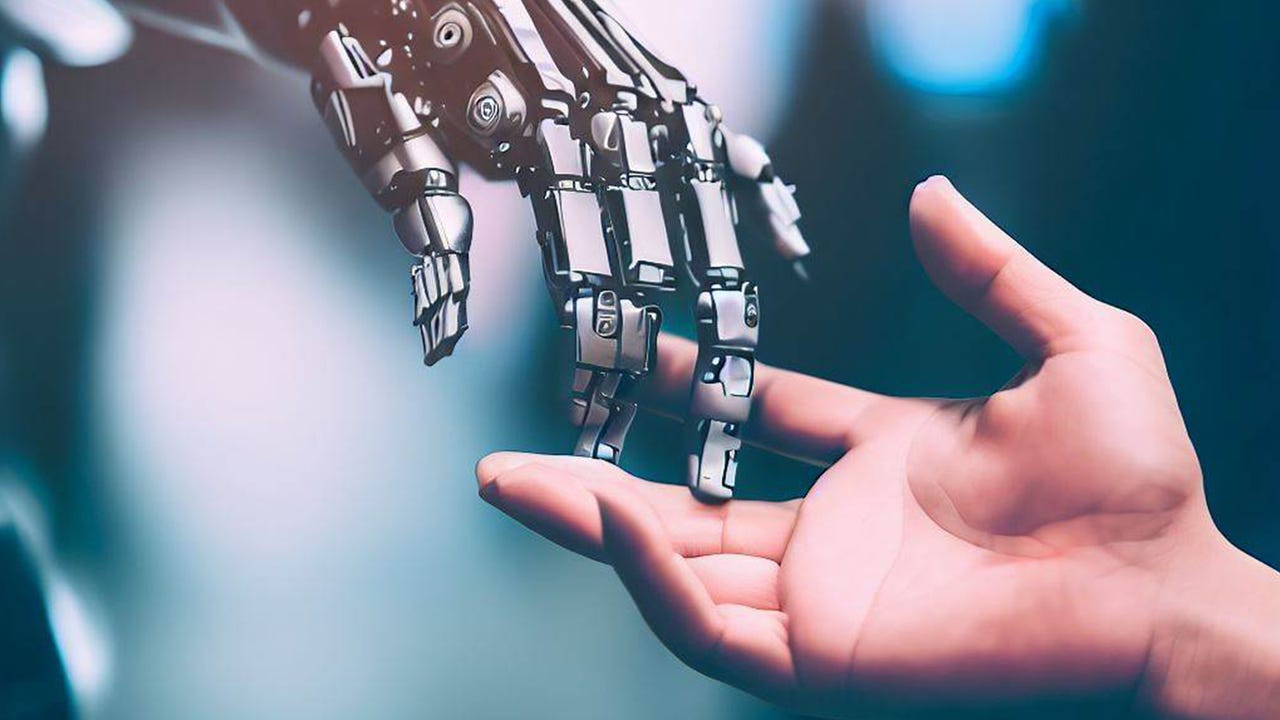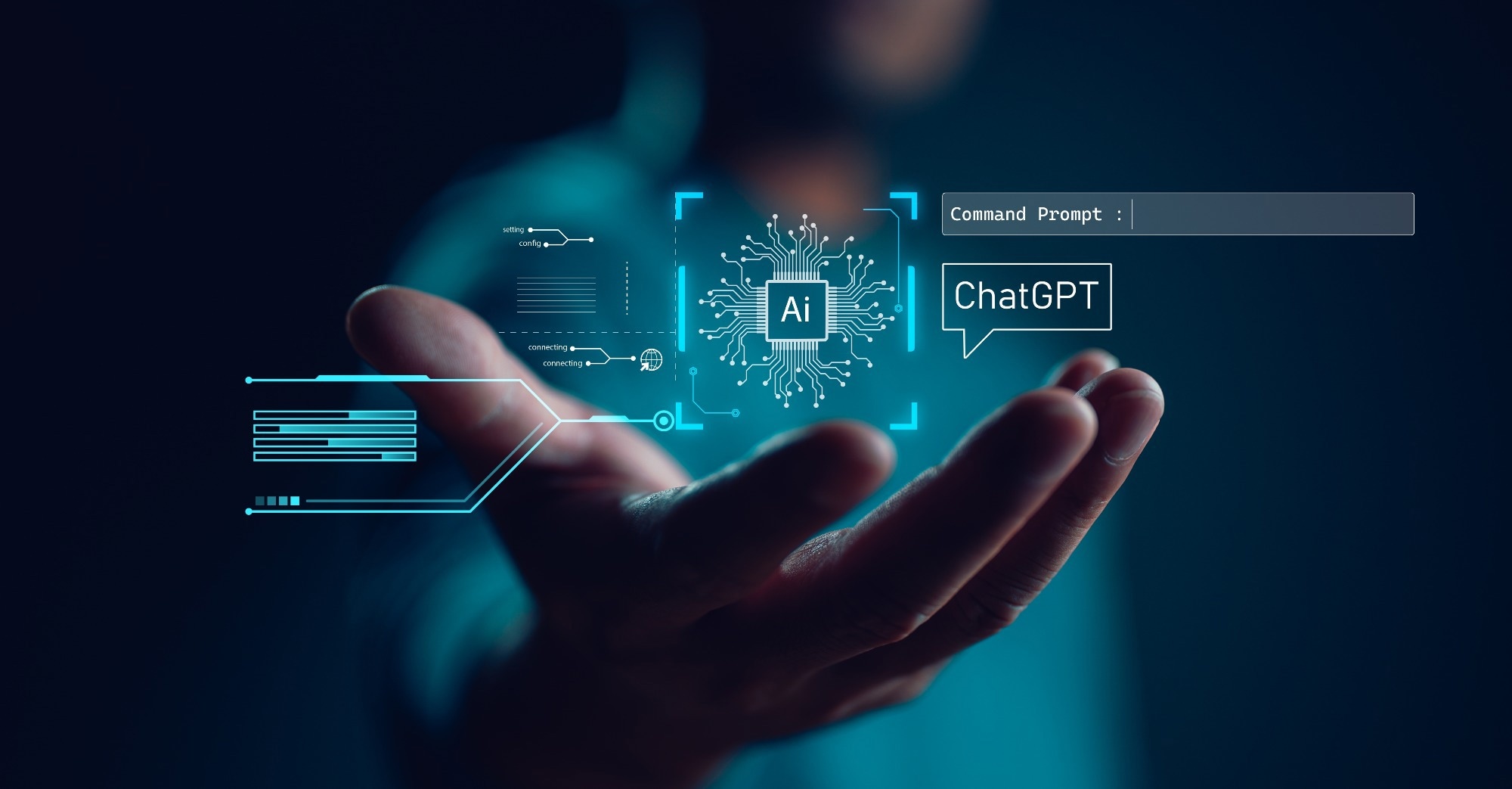From Information to Imagination: Discovering the Effect of Generative AI in the Field of Artificial Knowledge
Man-made knowledge (AI) has actually changed various industries, from healthcare to fund, by leveraging data-driven formulas to uncover important understandings. The possibility of AI goes far past mere information analysis. With the development of generative AI, a brand-new period is emerging, one that discovers the intersection of information and creativity. This interesting growth holds profound ramifications for the field of man-made knowledge, as it guarantees to transform not only how we understand and utilize information, however likewise just how we come close to the innovative process. By harnessing the power of generative AI, we can open the capability for devices to produce creative and initial content. In this conversation, we will certainly look into the impact of generative AI in the world of fabricated knowledge, examining its possible to change imaginative industries, help with human-computer partnership, and increase essential moral factors to consider. Join us as we explore the fascinating journey from data to creativity, and uncover the extensive effect generative AI could have on the future of expert system.
The Increase of Generative AI
Generative AI has become a cutting-edge area in synthetic intelligence, transforming the method devices generate new content and engage with the globe. In the last few years, there has been a considerable increase in the appeal and application of generative AI methods. These techniques allow machines to autonomously create brand-new and one-of-a-kind web content, such as photos, songs, and text, without specific human input.
One of the vital variables adding to the increase of generative AI is the accessibility of diverse and huge datasets. With the development of the internet and the spreading of electronic content, substantial amounts of information are now easily accessible to AI systems. This wealth of data provides the necessary raw product for training generative AI versions, permitting them to learn and imitate human creativity.

Furthermore, the boosted computational power and the availability of specialized hardware, such as graphical processing systems (GPUs), have played a crucial function in the increase of generative AI. These developments have actually empowered AI systems to process and analyze vast amounts of information, enabling them to produce material rapidly and efficiently.
Transforming Creative Industries
The growing abilities of generative AI, fueled by advancements in deep learning formulas and computational power, have resulted in a transformative influence on innovative sectors. This technology has reinvented the means creative specialists function, opening up brand-new possibilities and pushing the limits of human imagination.
Generative AI has actually made it possible for artists to discover brand-new realms of creative thinking by using them devices that can generate one-of-a-kind and novel web content. For instance, in the area of visual arts, generative AI formulas can assess existing artwork and produce brand-new pieces based on the style and characteristics of the input. This not just saves time however additionally broadens the imaginative opportunities, permitting musicians to explore various designs and techniques.
In the songs sector, generative AI has additionally had a substantial impact. It can compose brand-new melodies and consistencies, developing music that was previously unimaginable. This modern technology can even mimic the design of distinguished musicians, allowing the production of brand-new tunes that seem like they were made up by artists who have lengthy died.
Moreover, generative AI has discovered applications in various other imaginative fields, such as style and style. It can generate brand-new garments designs, indoor designs, and building concepts, offering designers with a wealth of ideas and accelerating the imaginative procedure.
Nonetheless, while generative AI provides interesting opportunities, it additionally increases ethical concerns and obstacles traditional notions of authorship and imagination. As this technology proceeds to create, it is crucial to strike an equilibrium in between human creative thinking and the capabilities of AI, ensuring that the last result reflects the objectives and imaginative vision of the human maker.
Enhancing Human-Computer Collaboration
Partnership in between computer systems and people is being boosted through the combination of generative AI, bring about a new age of innovative opportunities. With the advancements in artificial intelligence, humans are now able to work closely with computer system systems to accomplish end results that were previously inconceivable. Generative AI, a subset of AI that concentrates on creating new content, has reinvented the method people and computers collaborate.
Generative AI makes it possible for computer systems to produce material, such as photos, songs, and text, based on patterns and instances provided by people. This collaboration permits human beings to leverage the computational power of AI systems to enhance their imaginative processes. Musicians can make use of generative AI to create brand-new visual ideas or check out various designs, while artists can create unique structures by working together with AI-generated tunes.
Moreover, generative AI can help in tasks that call for huge quantities of information processing, such as data check analysis and pattern recognition - generative ai company. By integrating AI systems right into the partnership process, people can leverage the computational abilities of AI to evaluate intricate datasets and extract meaningful understandings
Nonetheless, to make sure successful partnership in between humans and computers, it is important to establish a clear understanding of the duties and obligations of each event. Humans have to provide the essential assistance and expertise, while AI systems can assist in the imaginative process by creating opportunities and options. This partnership between people and computer systems opens brand-new avenues for development and creative thinking, pressing the borders of what is feasible in various fields.
Moral Ramifications of Generative AI
As we look into the moral implications of generative AI, it emerges that this revolutionary technology raises significant worries and factors to consider. Generative AI systems have the capability to produce, generate, and imitate human-like content, such as pictures, video clips, and text. While this has opened up new opportunities and chances in numerous areas, it has additionally sparked discussions concerning the possible misuse and ethical predicaments related to such innovation.
One of the key problems is the capacity for deepfakes, which are controlled or produced media that can trick and misinform individuals. With generative AI, it ends you can check here up being easier for destructive actors to produce convincing deepfakes, bring about false information, reputational damages, and also political adjustment. This postures a hazard to the trust fund we position in digital media and can have far-ranging effects for societies and people.
An additional moral factor to consider focuses on the issue of intellectual building. Generative AI systems can produce original material that may infringe upon copyright regulations or raise inquiries about possession and acknowledgment. Establishing the civil liberties and duties in such circumstances ends up being an intricate task, particularly when AI-generated material is identical from human-created content.
In addition, generative AI has the possible to perpetuate and magnify existing predispositions and discrimination present in the training data. If the data made use of to train these systems consists of prejudiced info, the generated content might show and continue those biases, leading to inequitable or unjust outcomes.
Along with these problems, there is also a demand to take into consideration the effect of generative AI on permission, privacy, and safety. AI systems can collect, analyze, and use substantial quantities of personal data, bring about potential violations of privacy and issues regarding data security. In addition, the authorization of people whose information is made use of to educate and improve these systems have to be meticulously addressed to make certain honest practices.

Future Leads and Difficulties
The potential applications of generative AI are huge and differed. Additionally, generative AI has the prospective to enhance human-computer web communication by developing much more responsive and intelligent virtual aides and chatbots.

One more difficulty is the requirement for advanced algorithms and computational power to enhance the quality and efficiency of generative AI systems. The existing limitations in training time and computational resources impede the widespread adoption of generative AI in real-world applications.
Final Thought
Moral effects bordering generative AI needs to be meticulously thought about and resolved. Looking ahead, future leads and difficulties lie in further checking out the potential of generative AI and finding an equilibrium in between imagination and moral considerations.
Generative AI has emerged as a revolutionary area in artificial intelligence, transforming the method makers produce brand-new material and communicate with the globe. generative ai company.Generative AI has actually allowed musicians to discover brand-new worlds of creative thinking by supplying them devices that can produce unique and distinct content. Generative AI, a part of AI that focuses on producing brand-new web content, has actually revolutionized the means human beings and computers collaborate
Generative AI systems have the capacity to develop, create, and imitate human-like content, such as photos, video clips, and text. Generative AI systems can create initial material that may infringe upon copyright legislations or elevate questions about ownership and attribution.